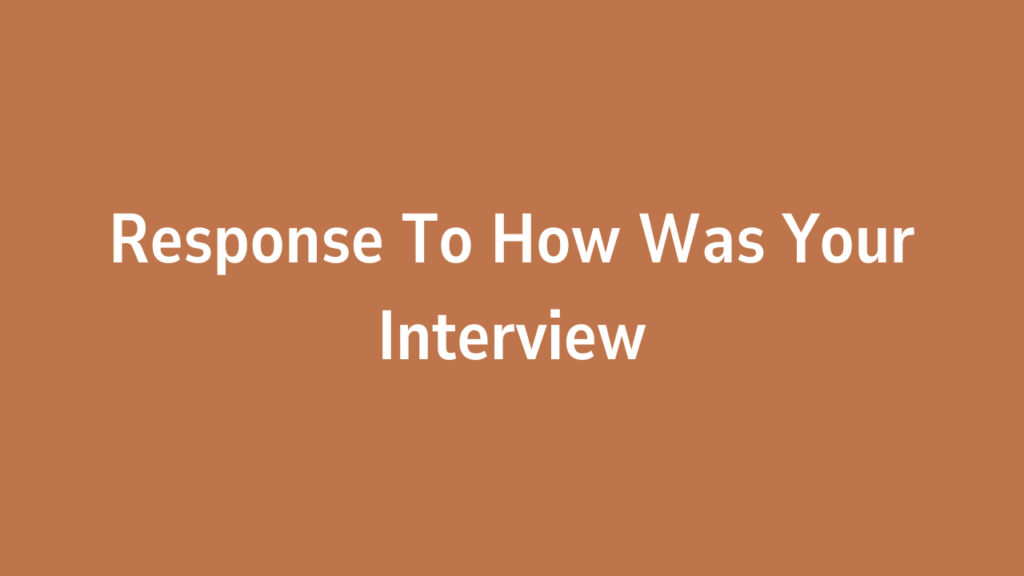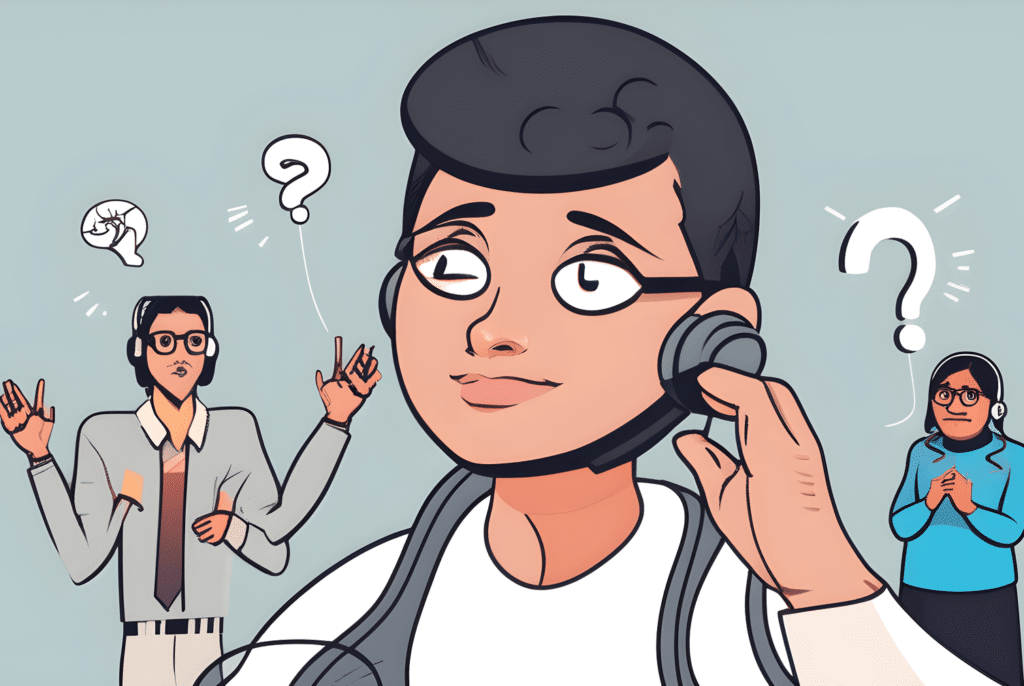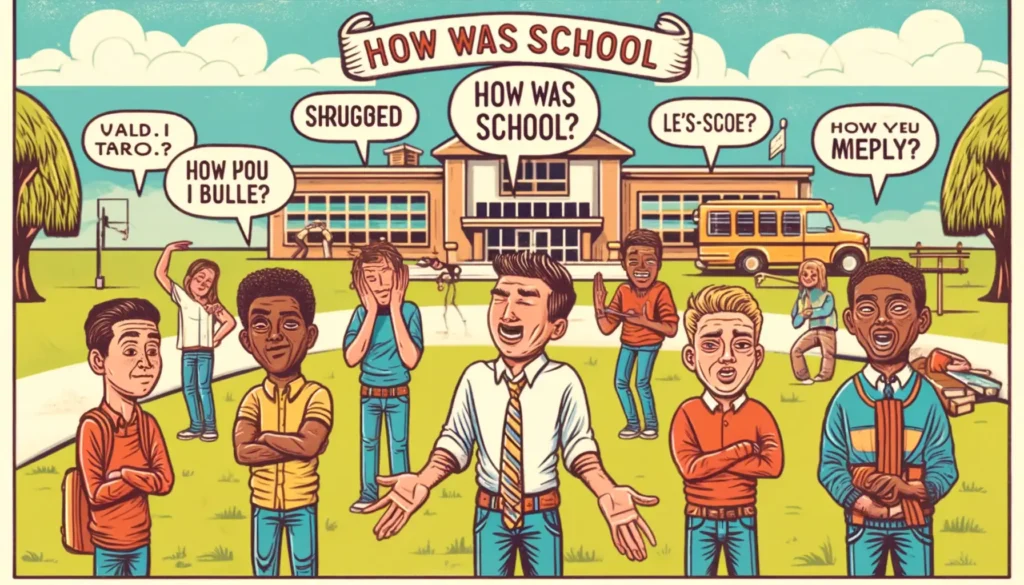Interviews are an essential part of the job search process, and once they’re over, you’re likely to get asked by friends, family, or colleagues, “How was your interview?” It’s a simple question, but your response can vary depending on how the interview went, your emotions at the time, and how much you want to share. Whether you feel confident, anxious, or unsure, crafting the right response is key to managing the conversation and setting expectations.
In this post, we’ll break down different types of responses based on how your interview went, why the answer matters, and how to respond in various scenarios. We’ll also offer tips on what to say when the interview went well, when it didn’t, and how to navigate those awkward in-between moments.
1. Why People Ask “How Was Your Interview?”
Before we dive into how to respond, it’s helpful to understand why people ask this question in the first place:
- To Show Support: Friends and family are genuinely interested in how the interview went because they care about your success.
- To Offer Advice: Sometimes, the person asking the question is hoping to provide helpful tips or advice based on their own experiences.
- Curiosity: People are often curious about how job interviews go, especially if they know it’s for a significant role or company.
- To Gauge Your Emotions: Your response can give others a sense of how you feel about the interview, whether you’re hopeful or anxious about the outcome.
Knowing why the question is being asked can help you shape your response accordingly.
2. Types of Responses Based on How the Interview Went
Your answer will differ depending on whether the interview went well, poorly, or somewhere in between. Let’s take a closer look at how to respond in each case:
2.1 When the Interview Went Well
If the interview was a success and you feel confident about it, your response can reflect your positive feelings while still keeping some humility. Here are a few ways to answer:
- “It went really well, I think. I felt confident, and the interviewer seemed to be really impressed with my skills and experience.”
- “It went great! We clicked, and I think I made a good impression. I’m really excited about the opportunity.”
- “I think it went well. The questions were challenging but fair, and I was able to answer everything with confidence.”
These responses are positive and show that you believe the interview went smoothly, but they avoid sounding overly confident or presumptuous.
2.2 When the Interview Didn’t Go Well
Not every interview goes as planned. If you felt the interview didn’t go well or you struggled to answer certain questions, it’s okay to be honest about it—but also try to focus on what you learned from the experience. Here are some examples:
- “It was a bit tricky. Some of the questions caught me off guard, but I’m taking it as a learning experience.”
- “It didn’t go as well as I hoped, to be honest. I think I could have answered a few questions better, but I’ll work on improving for next time.”
- “It was a bit rough. I wasn’t able to connect with the interviewer as well as I’d like, but I’m not giving up. It’s all part of the process.”
These answers show honesty without being too negative. They communicate that you’re processing the experience and are focused on growth rather than defeat.
2.3 When You’re Unsure How the Interview Went
Sometimes, after an interview, you may feel unsure about how things went. You might have had some strong moments but also moments that left you uncertain. If this is the case, here’s how you can respond:
- “It was a bit of a mixed bag. Some parts went really well, and others not so much. I guess I’ll have to wait and see.”
- “I’m not really sure. Some questions felt easy, but others were a challenge. I guess I’ll know soon enough.”
- “It was hard to tell. I felt good about some answers, but I’m not sure if I answered everything in the way they wanted.”
These answers show that you’re processing the experience, and while you’re uncertain, you’re still optimistic.
3. Why It’s Important to Be Honest in Your Response
Being honest when responding to “How was your interview?” is important for several reasons:
- To Manage Expectations: If the interview didn’t go well, being honest helps manage expectations, both for yourself and those who are eagerly awaiting the results.
- To Learn from the Experience: Talking openly about what went well or poorly can help you reflect on your performance and improve in future interviews.
- To Avoid Pressure: If you’re not feeling confident, pretending everything went perfectly can create unnecessary pressure for both you and the person asking.
- To Be Authentic: Being yourself in how you answer shows maturity and authenticity. It’s okay to admit if things didn’t go as expected.
However, being too blunt or harsh when talking about a less-than-ideal interview might dampen the mood, so balance honesty with a positive outlook.
4. How to Respond When You Feel Overwhelmed or Anxious
Job interviews can be stressful, and sometimes you might feel overwhelmed or anxious about your performance. If someone asks you about your interview during a time when you’re still processing your emotions, you can answer with a bit of humor or reassurance to calm yourself and others down:
- “It was a lot! But I think I handled it okay. Now I just have to wait and try not to stress too much!”
- “Honestly, it was a bit overwhelming, but I’m taking it one step at a time. Let’s see how it turns out.”
- “I’m not sure how it went, but I gave it my best shot. Fingers crossed!”
These responses acknowledge your feelings of uncertainty or stress but also show that you’re not letting it control you.
5. When They Ask About the Company or Role
In addition to asking how your interview went, people might be curious about the company or the role itself. If you had a positive experience, this is a great opportunity to share your enthusiasm:
- “I really like the company. They seem like a great place to work, and the role is exactly what I’m looking for.”
- “The team seemed really passionate about the work they do, and I think I could make a real contribution.”
- “I’m excited about the role. It’s a perfect fit for my skills and interests, and I’d love the chance to work there.”
On the other hand, if you didn’t feel as connected to the company or role, here are ways to respond while keeping it respectful:
- “The company is interesting, but I’m still not sure if it’s the right fit for me. I’ll think about it.”
- “The role was okay, but I’m still evaluating if it aligns with my career goals.”
These responses allow you to be respectful while also expressing any concerns you might have.
6. How to Respond When the Interview Was Good but Not Great
There may be situations where the interview went fine, but you feel like there’s still room for improvement. In this case, you can acknowledge both the positive and the areas that could have gone better:
- “It went pretty well, but I think I could have given better answers to some of the questions. I’m still happy with how I handled it overall.”
- “I did my best, but I think there are a few things I could improve on for next time. I’ll take this as a good learning experience.”
This response strikes a good balance between being positive while acknowledging that there’s always room for growth.
7. Managing Post-Interview Anxiety
If you’re feeling anxious after an interview, it’s common to overthink things. To help manage the anxiety, try these tips:
- Take Some Time for Yourself: Step away from the situation and focus on something that helps you relax.
- Reflect on the Positives: Even if you think the interview didn’t go well, focus on what you did right.
- Avoid Overthinking: Don’t obsess over minor mistakes. Everyone makes them, and they often go unnoticed.
- Talk It Out: Sometimes, just talking about your interview with someone else can help you feel better.
8. Conclusion: Responding to “How Was Your Interview?”
The way you respond to “How was your interview?” will vary depending on your feelings, the interview itself, and the person asking. Whether the interview went well, poorly, or somewhere in between, your answer should reflect your true emotions while maintaining a positive outlook.
Remember that interviews are a learning process, and not every one will go perfectly. Being honest, calm, and optimistic, regardless of how the interview went, helps you stay grounded and prepares you for the next opportunity. With the right response, you can manage both your emotions and your relationships as you wait to hear back about your job prospects.
9. Sample Responses Table
| Interview Outcome | Sample Response |
|---|---|
| Interview Went Well | “It went really well! I think I made a good impression.” |
| Interview Didn’t Go Well | “It was a bit tough, but I’m taking it as a learning experience.” |
| I’m Unsure About How It Went | “I’m not sure, some parts went great, but others were a bit tricky.” |
| Interview Was Overwhelming | “It was a lot, but I think I handled it well. Let’s see how it turns out.” |
| The Company/Role Felt Like a Good Fit | “The company seems great, and the role fits what I’m looking for.” |
| The Company/Role Was Uncertain | “I’m still thinking about it, but the company seemed interesting.” |



